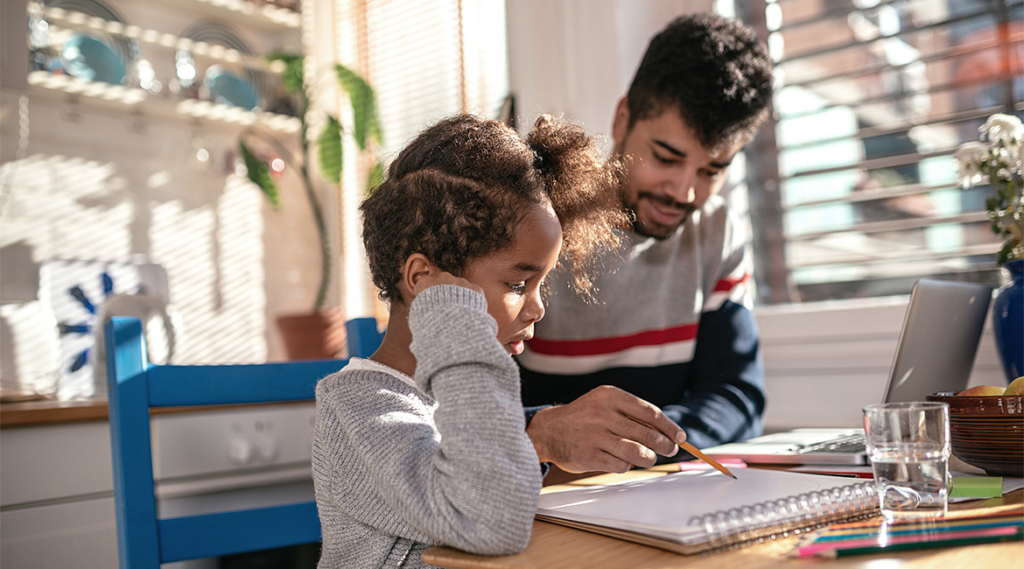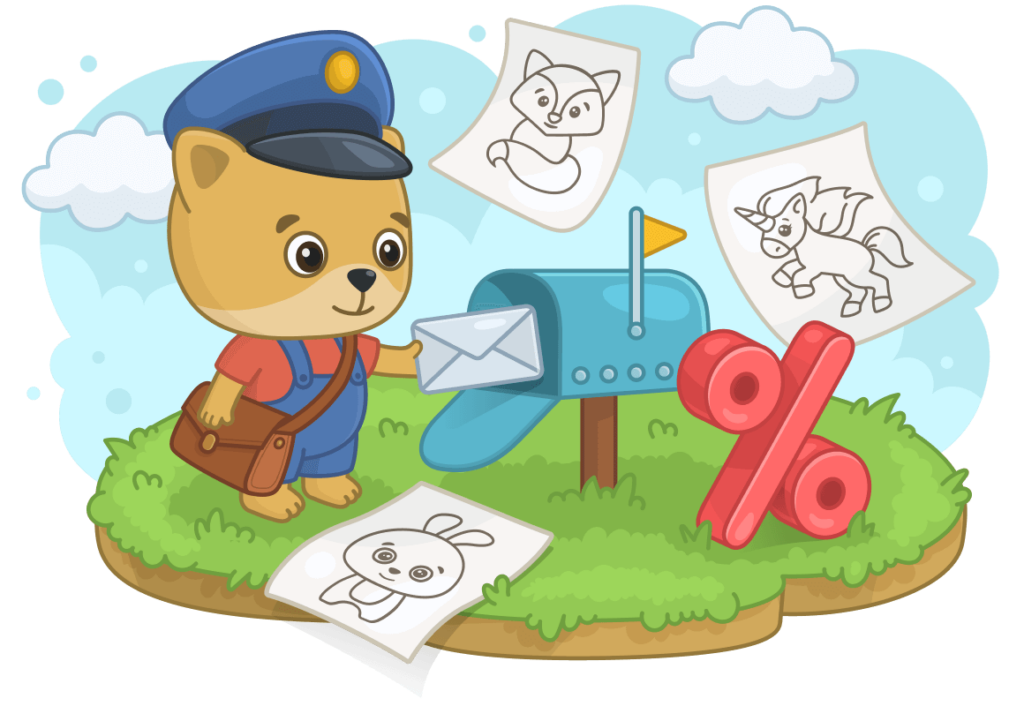From birth, your little one’s brain is developing at warp speed. They’re constantly taking in sights, sounds and routines while learning how to process all of that new information efficiently. That’s a lot of work for someone who’s only been on the planet for a few short years. Luckily, there are things you can do to strengthen your child’s ability to recall information. Doing so will give them an advantage at cognitive activities like reading, writing and arithmetic. We’ve compiled the facts about memory development and found eight awesome ideas to help get your child’s memory wheels turning.
Memory by Age
Do you know that almost everyone has a hard time recalling any memories from their baby days? Known as infantile amnesia, the years before a child reaches two years of age isn’t stored in their long-term memory. They do remember things like your voice or how to get their favorite toy to make a noise, but the day-to-day memories aren’t able to be recalled. As your little one grows and becomes a toddler, they can remember certain experiences that excited, startled or frightened them. For instance, if they got a boo-boo that really hurt or had a fun experience with their grandparents. By preschool age, they begin to learn how to file the memories away and bring them back out when they need them. That’s why they love to watch their favorite show over and over, sing the ABCs or begin to memorize their numbers and colors. By the age of 7, a child can begin to understand ways to improve their memory using certain strategies or techniques they’re taught at school. When a child becomes an adolescent, their ability to recall and learn techniques for improving memory is as strong as that of an adult.
There are 8 Tips and Tricks for Improving Memory

Discuss the Details
Because your little one is busy learning so much new information each day, it may be hard for them to recall the exact details of what happened earlier in the day, like during lunch or in small groups. You can help them learn to recall information by asking questions that trigger a memory. For instance, if their best friend’s name is Davis; You can ask what Davis had for lunch that day or if they played together on the playground. You can also ask them to recall special memories from the past to see how much information they retained. You can help them fill in the blanks for missing information and that will help their brain learn how to retain missing information and store it for the future.
Play Brain Games
One of the best ways to improve your child’s memory is to have them play a wide variety of memory games. From good, old-fashioned Memory (where you flip cards to find pairs) to new computer games and phone apps that help children remember how to tell stories, there are a wide variety of activities that will help your child’s brain get a good memory workout. They’ll have so much fun and not even know they’re learning.
Use Music
Certain studies suggest that listening to classical music can help boost brain power in wee ones. Music also serves as great practice for the memory sector of the brain. And learning nursery songs and rhymes like “Twinkle, Twinkle” or “Baa Baa Black Sheep” serve as one of the first memory activities a child can have. By the time your child is 12, they can recite whole songs, word for word.
Make It Visual
Pointing out signs or places where you’ve been before, can help your little one connect an image with an experience. This visualization technique can help your little one process and recall the memory better. As your little one begins to learn letters, you can point out images on cereal boxes or road signs. When your little one learns their address, take them outside to actually see the street sign and the numbers on the house.
Stay Organized
You’ve heard the saying, “A place for everything and everything in its place.” By having a certain place for items like snacks, your child’s bookbag, their favorite Legos or their special baby doll can help them learn to process where they put items and where items belong strengthening their recall ability.
Break It Up
By taking large amounts of information and breaking it up into smaller sections can help your child memorize that particular poem for class or that part for the school play. Smaller chunks of data are much easier for your child to memorize at first.
Learn Memory Strategies
By learning the right way to take notes or study for a spelling test can give your child the tools they need to start memorizing harder items like multiplication tables or memory verses. Making sure that you eat a diet full of healthy fruits, vegetables, antioxidants and healthy fats can also make sure the brain is as healthy as possible and more likely to recall easier.
Practice Makes Perfect
Repetition is memory’s best friend. By doing certain things over and over, the brain can more easily remember how it’s done. That’s why it’s so important to practice a musical instrument or dance to remember how it’s really done.
Boosting your child’s memory is easy and fun! Most of the time, your child won’t even realize how much they’re practicing pumping up their memory because they’ll be having so much fun. Talk with your child, describe events and ask questions that help your child put all the pieces to the memory puzzle together! Pretty soon, you’ll be amazed at just how much they can remember!



